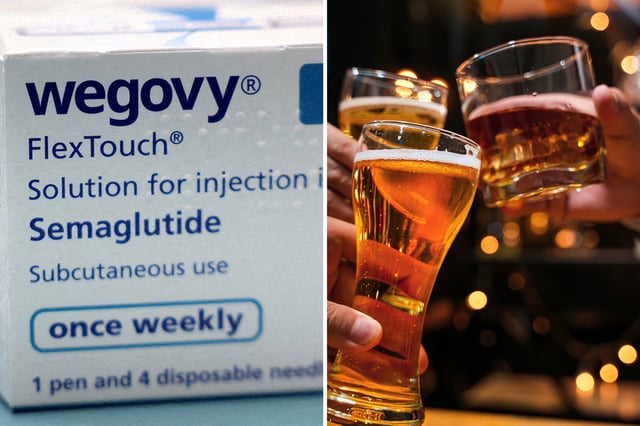Overview
- A real-world study of 262 obese adults found that GLP-1 receptor agonists, such as semaglutide and liraglutide, reduced alcohol consumption by 68% among regular drinkers over four months.
- The drugs may act on subcortical brain reward pathways, curbing alcohol cravings and making the reduction in intake feel 'effortless' to patients.
- A systematic review of 36 studies involving 26,000 participants linked GLP-1 drugs to significant improvements in mood, well-being, and quality of life, with no increased risk of psychiatric side effects.
- These findings suggest a broader therapeutic role for GLP-1 drugs in addressing co-occurring obesity, alcohol use disorder, and mental health conditions, though larger randomized trials are needed to confirm efficacy.
- Researchers emphasize the importance of further investigation into the drugs' potential as treatments for mental health disorders, given their anti-inflammatory and neuroprotective properties.



